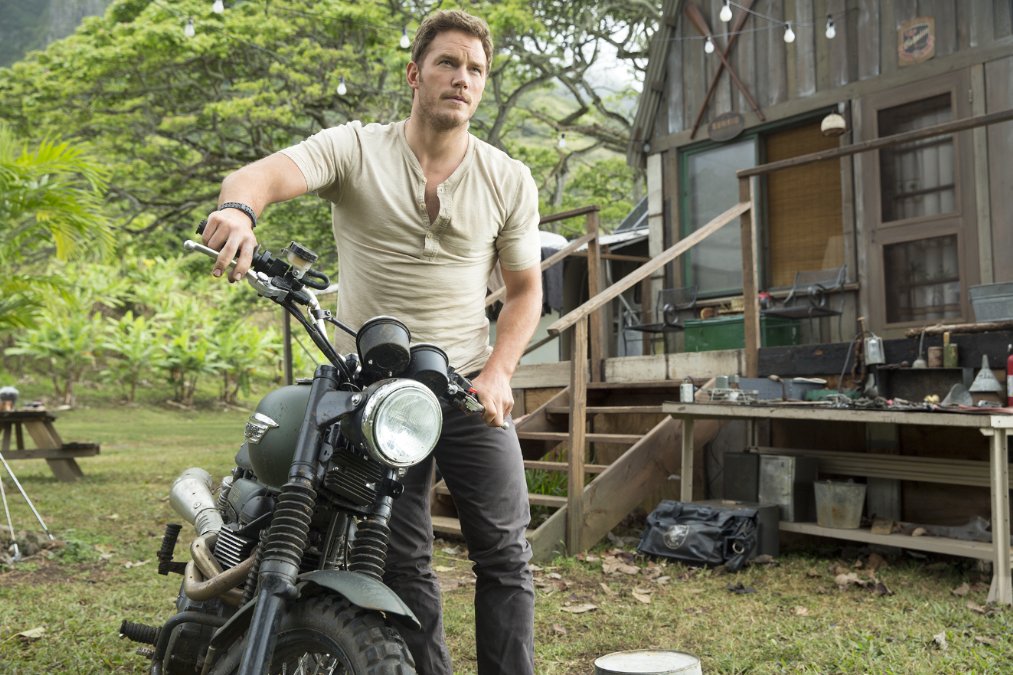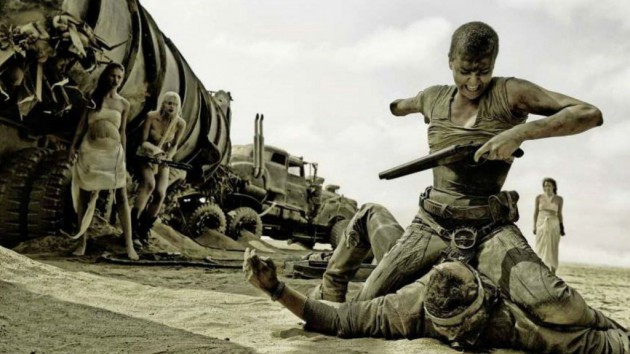Jurassic World is fine. Massive blockbuster earnings aside, it’s neither contrived enough to feel like another lesser sequel nor original enough to stray too far from Spielberg’s 1993 original. That uneasy cradle — between ingenuity and brand loyalty — is where tentpole franchises and their music have come to rest. With Furious 7, Atlantic Records threw dub step and electro-house music onto another collection of so-so promotional hip-hop. Henry Jackman and Matthew Margeson only squeak out brief homages to John Barry rather than admit how indebted to Roger Moore Bond Kingsman: The Secret Service really is. Even Danny Elfman and Brian Tyler never stray far from Alan Silvestri’s original “Transformers meets Mission Impossible” theme in Avengers: Age of Ultron.
Blockbuster movie composition is, like the studio system in 2015, sturdy, safe and kinda boring. Michael Giacchino’s score for Jurassic World is the latest to fit the mold. Like the movie itself, it’s fine, sinewy and flexible enough to bend when its story wants to be a slasher film and when it wants to turn its dinos into characters. It captures the key elements of, really, any Jurassic movie: (1) “Woah, dinosaurs” and (2) “Oh, family.” It draws from John Williams’ original Jurassic Park score, too. Marketing made damn sure anyone who bought tickets to Jurassic World last weekend didn’t forget THE PARK, and Michael Giacchino doesn’t want us to think he has either.
The operative word here is “think” though, and that’s a problem. “Welcome to Jurassic World” sounds like a pops orchestra sprinting through their least favorite number on the program, while Williams’ rousing secondary theme gets hasty lip service in “As the Jurassic World Turns.” In the film, these moments don’t play like glorious callbacks or even problematic nostalgia trips; they’re too short for that, like shrugging off dead weight. The original work here is completely serviceable but like it or not, most of that “Woah, dinosaurs” stuff in Jurassic World is still indebted to Williams. Indeed, we’ve returned to the park, and Giacchino makes it feel like a class trip to the zoo.

Rewind a month, when another franchise was dug up and dusted off. As of this writing, Mad Max: Fury Road has been the hipster’s savior at the multiplex this summer, with George Miller’s titular anti-hero shaving off his too-long-for-2015 mane and plunging into an exposition-free two-hour chase across the Namibian desert. Sumptuous world-building, practical effects, and more women than you can throw a Bechdel Test at were the talk of the critical town in May. Miraculously, Miller updated his post-apocalypse for the 21st century, a bleak vision that rose above the likes of The Purge and a horde of Walking Dead copycats thanks in large part to a score by Junkie XL.
Doubly credited with his handle and his birth name, Tom Holkenborg could only go up after last year’s underwhelming 300: Rise of an Empire, which transposed that baffling sequel’s bloody, pea-brained monotony onto dance beats. Fury Road dips its toes into the electronica pool again, smashing together dub-step swells with call-and-response percussion corps and gung-ho ostinato in “Brothers in Arms” and “Spikey Cars.” Commanding a nearly 200-instrument score, Holkenborg mows down the monotony of Frank Miller’s sword and sandals sequel with gleeful bloodlust. At a time when pulp comic book cinema doesn’t seem like it could get more ubiquitous, you can still fight fire with fire.

Fury Road does share a kinship with the contemporary blockbuster, but it’s with the Hans Zimmer school of unnerving pulses. Metallic rhythms scrape against George Miller’s harsh, unforgiving desert. “Immortan’s Citadel,” named after Hugh Keays-Byrne’s warlord with a Halloween mask, morphs with the same semi-chromatic hauntedness of the 14-minute “A Dark Knight” and cuts like Inception‘s final dream collapse. It shouldn’t be surprising that Holkenborg is collaborating with the German composer on Zack Snyder’s looming/forthcoming Batman v. Superman: Dawn of Justice, and the grandest feat in Fury Road is that unlike Man of Steel, its qualified bleakness never extinguishes its optimism. “Let Them Up” foregoes the Superman reboot’s cloudy, false hopes with a tectonic chorus and booming brass, more Christopher Reeve than Henry Cavill in its final notes. Like Giacchino, Holkenborg pays lip service to his elders; it’s that his back isn’t strained by the weight of rose-colored glasses.
When it isn’t elaborating on the best hero themes have to offer, Fury Road takes cues from the best in composition period. Nine Inch Nails-inspired guitars, played like most of the score’s instruments by Holkenborg himself, rip with jagged riffs on “Blood Bag” and sludge metal chugs on “The Bog.” At other points, the timbre is as cloudy and cold as the best Trent Reznor has to offer. Or Samuel Barber. (Yes, Samuel Barber.)
In his 2003 single “This is the New Shit,” Marilyn Manson screams out his chorus with seething provocation. “Are you motherfuckers ready/ for the new shit?/ Stand up and admit/ tomorrow’s never coming.” Mad Max: Fury Road isn’t hopeful about a new day; it’s hoping to survive long enough to get there first. Despite a bleak landscape where nostalgia can bind and shackle even the most ingenious players, a Dutch producer with an Elvis remix to his name can be as worldly and transgressive as one of the all-time shock rockers. Far too much was made of Fury Road‘s flame-spouting, guitar-shredding “Doof Warrior,” with junket reporters digging for some secret essence inside the flimsy backstory of some extra in a weird mask. We’ve been listening to guy behind Mad Max‘s war drums this whole time and while the world may be a bleak one, the future couldn’t look brighter.

